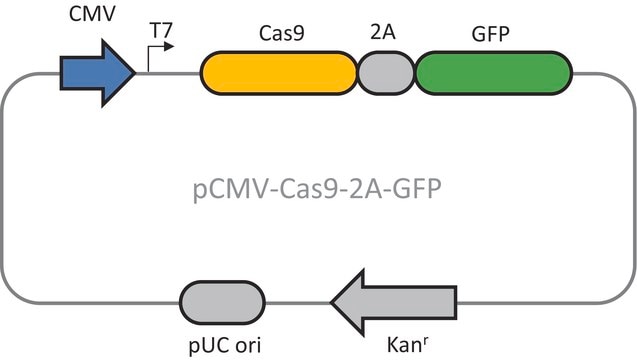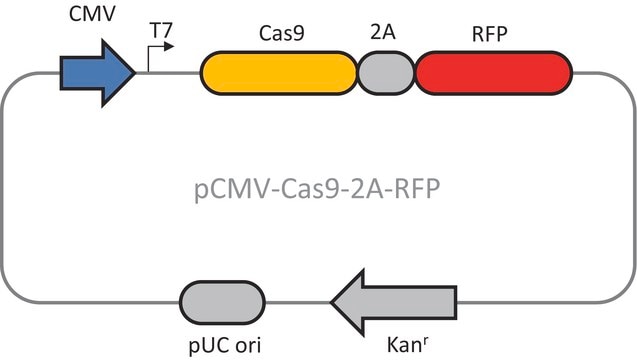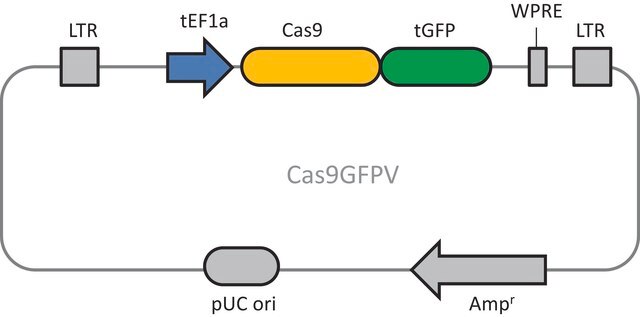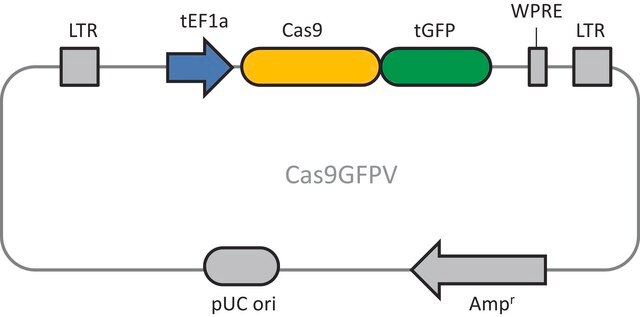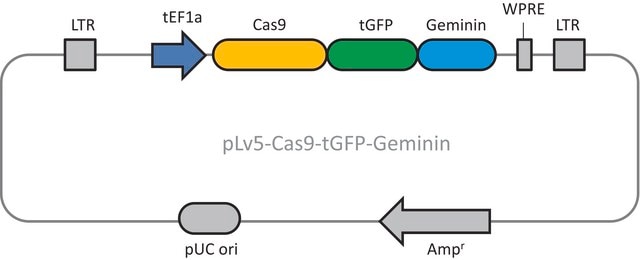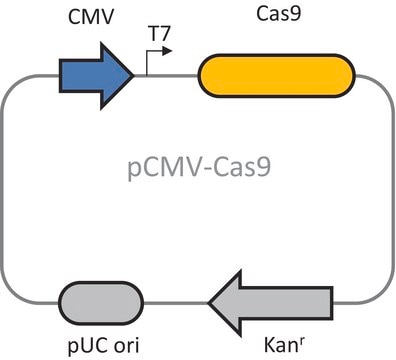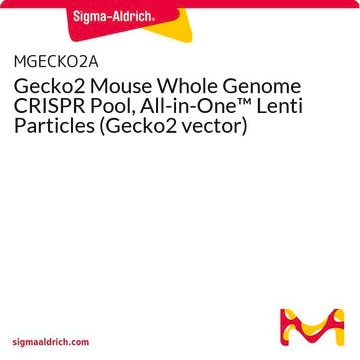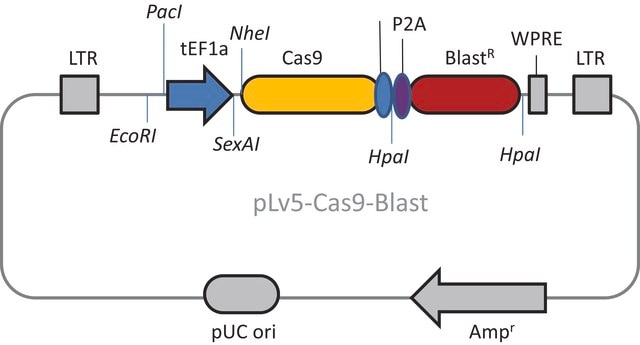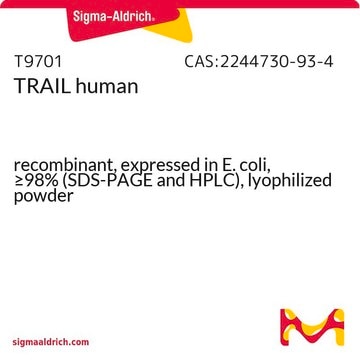Recommended Products
recombinant
expressed in E. coli
form
liquid
packaging
vial of 50 μL
concentration
20 ng/μL in TE buffer; DNA (1μg of Plasmid DNA)
application(s)
CRISPR
reporter gene
RFP
selection
ampicillin
shipped in
dry ice
storage temp.
−20°C
Related Categories
General description
This product is a lentiviral plasmid that utilizes the EF1 alpha promoter to drive expression of Cas9 and RFP linked by a 2A peptide (EF1a-Cas9-2A-RFP) allowing for easy visualization of successful transfection or transduction. Use Sigma′s lentiviral Cas9 plasmid for generation of lentiviral particles and efficient production of stable cell lines expressing Cas9 for CRISPR based genome editing. Sigma′s Cas9-RFP lenti plasmid is one part of a two part CRISPR system with individual Cas9 and gRNA expression vectors. For easy fluorescence microscopy a MOI greater than 200 should be employed when packaged into lentiviral particles.
To order gRNA in any format click here
To order gRNA in any format click here
Application
Functional Genomics/Target Validation
- Creation of gene knockouts in multiple cell lines
- Complete knockout of genes not amenable to RNAi
- Manufacture of Cas9-RFP expressing Lentiviral Particles
Features and Benefits
- Highly specific
- Highly active
- Ready to use purified plasmid DNA
Principle
CRISPR/Cas systems are employed by bacteria and archaea as a defense against invading viruses and plasmids. Recently, the type II CRISPR/Cas system from the bacterium Streptococcus pyogenes has been engineered to function in eukaryotic systems using two molecular components: a single Cas9 protein and a non-coding guide RNA (gRNA). The Cas9 endonuclease can be programmed with a single gRNA, directing a DNA double-strand break (DSB) at a desired genomic location. Similar to DSBs induced by zinc finger nucleases (ZFNs), the cell then activates endogenous DNA repair processes, either non-homologous end joining (NHEJ) or homology-directed repair (HDR), to heal the targeted DSB.
wgk_germany
WGK 2
flash_point_f
Not applicable
flash_point_c
Not applicable
Certificates of Analysis (COA)
Search for Certificates of Analysis (COA) by entering the products Lot/Batch Number. Lot and Batch Numbers can be found on a product’s label following the words ‘Lot’ or ‘Batch’.
Already Own This Product?
Find documentation for the products that you have recently purchased in the Document Library.
Our team of scientists has experience in all areas of research including Life Science, Material Science, Chemical Synthesis, Chromatography, Analytical and many others.
Contact Technical Service